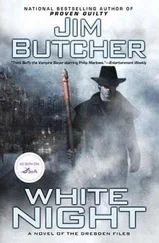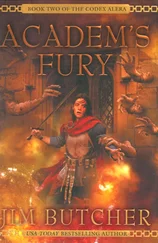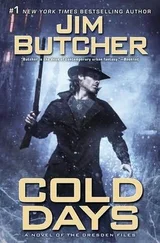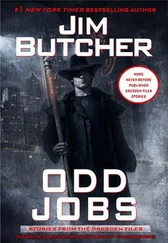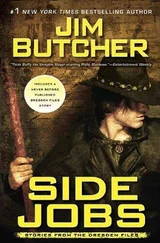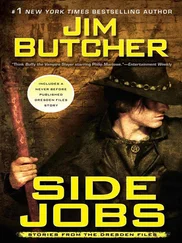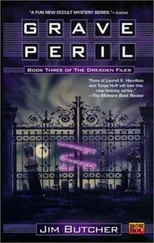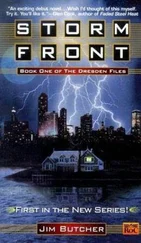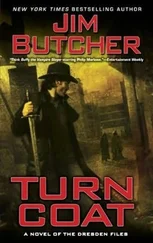But then the image was gone.
That was as close as I got.
I sat down on my stool after three hours of work and felt more exhausted than at any time I could easily recall. I’d gotten nothing that would tell me where she was, nothing that would tell me what was in store for her. Except for the single flicker of knowledge that Maggie was still alive, I’d gotten nothing.
But even that might be enough. She was still breathing.
Hang in there, kid. Dad’s coming.
I sat there on the stool for a moment, wearily. Then I reached for a piece of paper, an old pencil, and wrote:
Ivy,
I need your help.
It’s for a little girl who is being held by bad people.
Please contact me.
Harry Dresd—
Before I’d gotten finished writing my name, the phone rang.
I’d just made contact with the Archive, with the magically constructed catalog of every bit of knowledge mankind has ever written down. It resided in the head of a teenager, the sum of human learning in the hands of a girl who should have been going to ninth grade this year.
Knowledge is power, and a couple of years before, the Archive had proved it. As a child not much older than Maggie, she had pitted her magic against the skills of beings with centuries of experience, and come out, for the most part, ahead. She was an unwholesomely powerful child, and while she had always comported herself with the gravity of a woman of forty, I had seen flashes of the child supporting the vast burden of the Archive. I knew what would happen if that child ever decided to take control of how the Archive was administered. It would probably look a lot like that episode of The Twilight Zone with the monstrous little kid with superpowers.
The phone rang again. I shivered and answered it. We’d run a long line down into the laboratory, and the old rotary phone sat near Molly’s desk, benefiting from being on the fringes of such a well-organized place. “Hello?”
“It’s Kincaid,” said a man’s baritone. Kincaid was Ivy’s driver, body-guard, cook, and all- around teddy bear. He was the single deadliest gunman I had ever had the terror of watching, and one of a relatively few number of people who I both disliked and trusted. He had once described the method he would use to kill me, if he had to, and I had to admit that he had an excellent chance of succeeding. He was tough, smart, skilled, and had a mercenary sense of honor—whoever held his contract was his charge, body and mind, and he never abrogated a contract once he had signed it.
“Dresden,” I replied. “This line probably isn’t clear.”
“I know,” Kincaid replied. “What do you want?”
“I need to find a child. She was taken by the Red Court a few days ago. We believe her to be somewhere in Mexico.”
“Somewhere in Mexico?” Kincaid said, and I could hear his grin. “You tried walking around and yelling her name really loud yet?”
“I’m getting there,” I said. “Look, does she know anything or not?”
Kincaid muffled the phone with something, probably his hand. I heard his low, buzzing voice as he asked a question. I might have heard a light soprano voice answering him.
Kincaid returned to the phone and said, “Ivy says she can’t get involved. That the business you’re on is deadly. She dares not unbalance it for fear of changing the outcome.”
I made a growling sound. “Goddammit, Kincaid. She owes me one. Remind her who came and took her away from those fucking Denarian lunatics.”
Kincaid’s voice became quieter, more sober. “Believe me, she remembers, Dresden. But she isn’t free to share her knowledge like you or me. When she says she can’t tell you, she’s being literal. She physically cannot let such information leave her head.”
I slammed the heel of my hand into a wall and leaned on it, closing my eyes. “Tell her,” I said, “that this is information I must have. If she can’t help me, I’ll be taking it up with other sources. The ones in my green notebook.”
Kincaid spoke with someone again. This time I definitely heard Ivy’s voice answering him.
“She can’t tell you where the girl is,” Kincaid said. There was a hint of steel in his voice, warning me not to push too hard. “But she says she can tell you someone who might.”
“Any help would be greatly appreciated,” I said, exhaling.
“She says to tell you that before you try the green book, there’s something else you might consider. The last man you want to see might have useful information.”
I understood what she was talking about at once and groaned. “Dammit,” I muttered. “Dammit.”
I dialed another number. A receptionist asked me how she could direct my call.
“This is Harry Dresden,” I said quietly. “Put me through to Mr. Marcone’s personal line, please.”
“I don’t like it,” Molly said, scowling. “You sure you don’t want me to go in there with you? He’s got people.”
“Definitely not,” I said calmly. “I don’t want you showing up on his radar.”
“I’d like to see him try something,” Molly said, clenching one hand into a fist and thumping the Blue Beetle ’s steering wheel for emphasis. “I’d eat him for breakfast.”
“No, Molly,” I said in a firm tone of voice. “You wouldn’t. Marcone might be vanilla mortal, but he’s dangerous. Most men have limits. He doesn’t. Never forget that.”
“If he’s so dangerous, why are you talking to him?”
“Because he also has rules,” I said. “And besides. I just had to see him here. Keep your eyes open for a third party interfering. I’ll worry about Marcone. Okay?”
“Okay,” Molly said, nodding, her eyes intent. In a spectacular bid for the Do as I Say, Not as I Do Award, she took a long pull from an energy drink in a can the size of a milk carton. “Okay.”
I got out of the Blue Beetle and walked into my meeting with Gentleman Johnnie Marcone, the undisputed gang lord of Chicago.
Burger King had just opened its dining area, but it was already half-full. I ignored Marcone upon coming in and got in line. A sausage biscuit and cup of coffee later, I went to the back corner where Marcone sat and his retinue stood.
Hendricks was there, of course, in an extra-large suit and a red-haired buzz cut. Maybe he’d been working out, because he looked like he’d put on a few more pounds. If he got any bigger, he’d need a building permit. Miss Gard stood a little apart from Hendricks, covering the angles the big man couldn’t. She was just as blond and athletic and Amazonian as ever, her suit and tie muting her curves without reducing her appeal.
Marcone sat in the booth as if at a boardroom table. He wore a silk suit probably worth more than my car, and sat with his elbows on the table, his fingertips pressed together into a steeple. He looked like a man in his mature prime, neat and precise from his haircut to his polished leather shoes. He watched me come over to the table and slide my plastic tray into place before me. I dumped four or five packets of sugar into my coffee and stirred it with a little stick. “You’re not eating?”
He looked at his watch, and then at me. He had pale green eyes the color of old bills, but less personal. His stare was unsettling, and he met my eyes without concern. We had already taken the measure of each other’s souls. It was why I knew precisely how dangerous the man sitting across the table from me could be, and why I insisted upon treating him in as cavalier a fashion as possible. One doesn’t show dangerous predators weakness or fear. It makes them hungry.
I savored a bite of the biscuit, which was only a reminder of how good a real homemade biscuit and sausage was, but for the sake of my audience, I made sounds of enjoyment as I chewed and swallowed. “You sure?” I slurped some more coffee. “You’re missing out on ambrosia, here.”
Читать дальше

